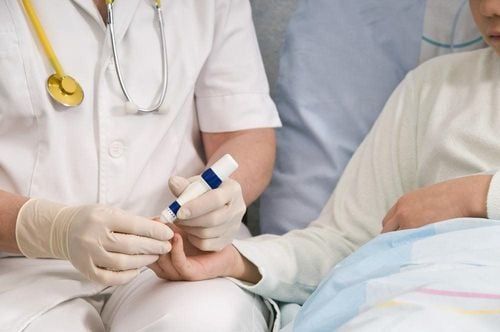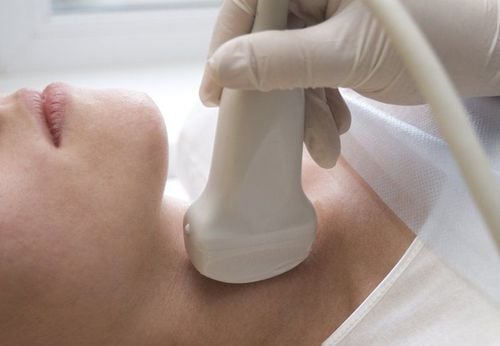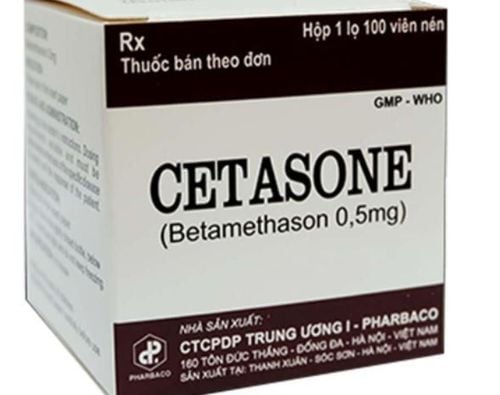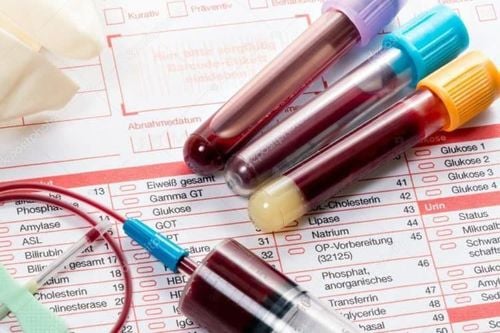This is an automatically translated article.
The article is professionally consulted by Master, Doctor Nguyen Thi Ngoc - General Internal Medicine - Endocrinology - Department of Examination & Internal Medicine - Vinmec Central Park International General Hospital. Doctor has more than 10 years of studying, researching and working in the field of endocrinology.The glycemic index is the amount of glucose present in the blood. This is a simple sugar. Blood glucose levels are constantly changing, based on blood glucose to assess diabetes. This is an important indicator. Blood glucose is measured in mg/dL or mmol/L.
1. What is the glycemic index?
The glycemic index (GI) is an indicator that reflects the rate at which blood sugar rises when the body absorbs foods such as rice, cakes, bread,...The glycemic index is divided into 4 categories including:
Fasting blood sugar Meal blood sugar Postprandial blood sugar HbA1C .
2. Safe value of glycemic index
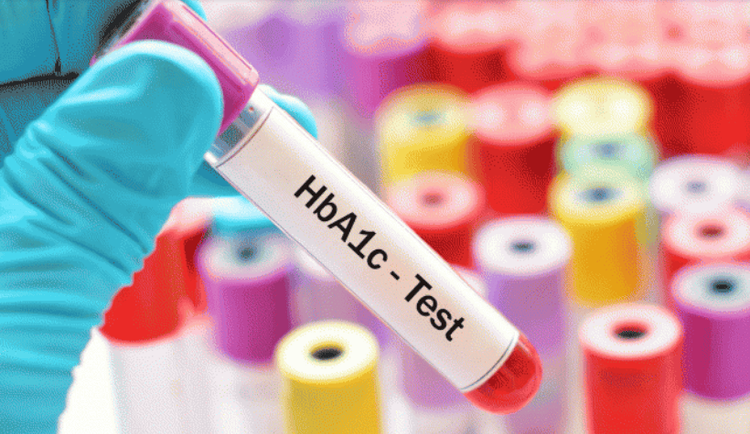
Xét nghiệm chỉ số HbA1C giúp đánh giá tình trạng đường máu
Random blood sugar less than 180 mg/dL (10 mmol/l) Fasting blood sugar between 80-130 mg/dL (less than 7 mmol/dL) Postprandial blood sugar less than 180 mg/dL (10 mmol/dL) HbA1C value < 7% For normal people, the blood glucose index has a safe value will fall within the following range:
Random blood sugar less than 140 mg/dL (7.8 mmol/l) Fasting blood sugar less than 100 mg/dL (< 5.6 mmol/l) Postprandial glycemic index eating less than 140 mg/dL (7.8 mmol/l) HbA1C value < 5.7% To determine if you have diabetes it is essential to have a blood glucose test or a blood sugar test. HbA1C number. This index is intended to help people with diabetes control blood sugar regardless of when they are full or hungry. A normal HbA1C will be in the range of 5.4-6.2%, above 7% means diabetes. Your blood sugar increases by 30mg when it increases by 1%.
Based on the glycemic index, we can determine whether the patient is in normal or pre-diabetic, or diabetic. If the disease is detected early, the patient will not need to be treated with drugs, but instead can change the diet, exercise, and exercise accordingly.
3. Methods to maintain the glycemic index

Luôn giữ tinh thần lạc quan, thoải mái sẽ góp phần hỗ trợ cân bằng đường huyết
Regularly monitor blood sugar If you have to take medicine, you need to follow your doctor's instructions to avoid unwanted side effects, take your medicine regularly, follow the treatment schedule by your doctor, absolutely do not change the dosage without your doctor's consent. Eat a reasonable, balanced diet Foods that contain high sugar are absorbed quickly, which means that blood sugar will rise quickly but also fall quickly Low GI foods will increase blood glucose levels Slowly and slowly reducing, helping diabetics control blood sugar safely. Regularly exercise, choose a form of exercise that is suitable for health. Note that you should check your blood sugar, blood pressure, and heart rate before exercising. Always keep a positive, comfortable spirit... Maintaining blood sugar at a safe level with a scientific diet, being active and using medicine if necessary is the key to preventing and reducing harms. of diabetes on the body.
Currently, the HbA1c test is one of the tests performed in the Cardiovascular and Diabetes Screening Package at Vinmec, helping to detect and screen diabetes early and thereby have a timely and effective treatment plan. fruit.
Please dial HOTLINE for more information or register for an appointment HERE. Download MyVinmec app to make appointments faster and to manage your bookings easily.




